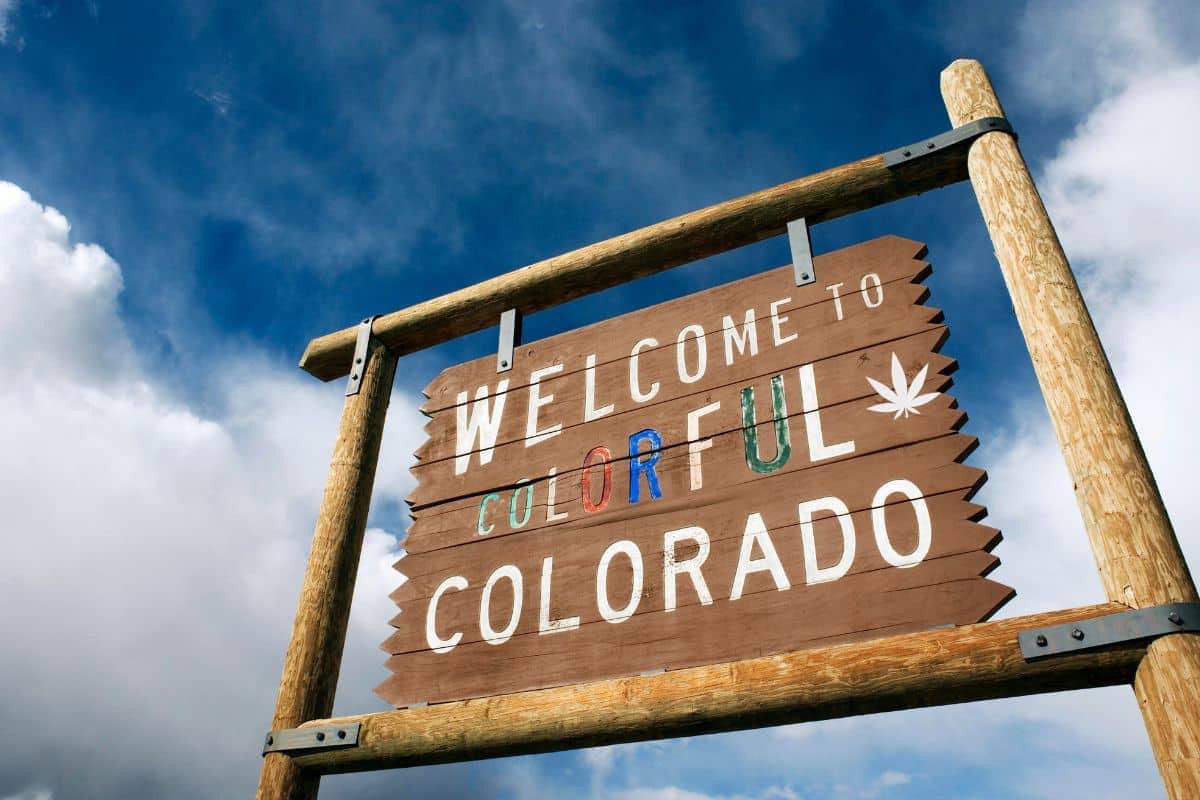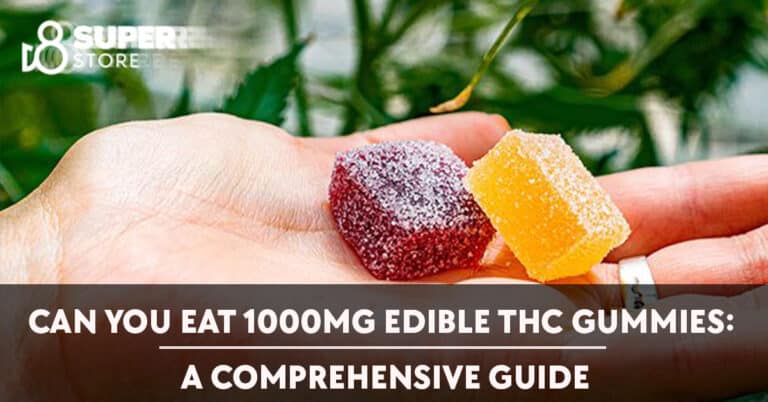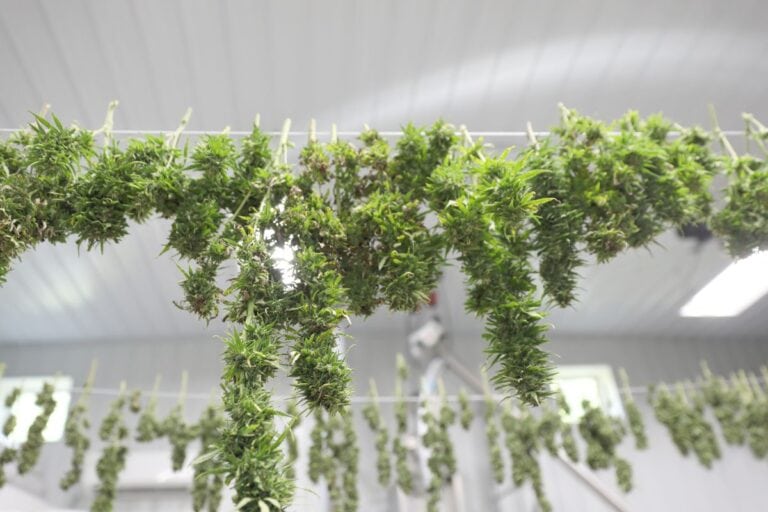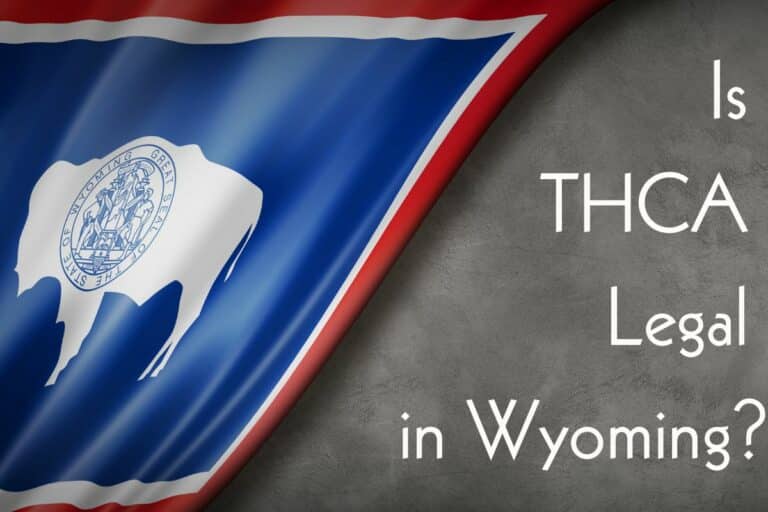Is THCa Legal in Colorado: Understanding State Cannabis Regulations
Out in the wilds of the Colorado Rockies, the world of weed and its pals, especially the easygoing buddy THCa, play by a big rulebook. Imagine THCa, all mellow and not messing with your mind, lounging in its lush, green nook. But light it up, and kaboom, THCa flips into the party starter, Δ9-THC, firing up that well-known high. Got a curiosity streak about Colorado’s take on THCa? Stay with us. You’re on the brink of discovering something as invigorating as a breeze off the Rocky peaks. Why stay tuned? We’re digging into a tale of transformation that might just flip your perspective on cannabis completely.
Your interest in the legality of THCa in Colorado might arise from its medicinal potential or simply as a matter of staying informed as a resident or visitor to the state. It is crucial to distinguish between the plant form, the concentrations of THCa, and the resulting products after decarboxylation to fully comprehend their legal implications. While Colorado has been at the forefront of legalizing cannabis for both medicinal and recreational use, the specifics of THCa’s legal status require a closer examination of the state’s regulatory framework.
With the progressive stance on cannabis, Colorado residents have been able to legally buy medicinal cannabis, and the state has continued to evolve its legislation since the initial legalization. The legal nuances, however, emphasize the importance of staying up-to-date with the most current provisions regarding cannabis and its derivatives, including the implications for possessing, using, and extracting THCa.
THCa Overview
When you’re exploring the world of cannabinoids, particularly in the legal landscape of Colorado, understanding THCa is crucial. It’s a non-psychoactive precursor to THC, which transforms to the well-known psychoactive component upon decarboxylation.
What is THCa
Tetrahydrocannabinolic acid (THCa) is one of the primary cannabinoids found in the raw cannabis plant. Unlike its better-known counterpart, tetrahydrocannabinol (THC), THCa is non-psychoactive, which means it won’t produce the “high” associated with THC. In its natural state, THCa serves as the acidic precursor to THC. Only when exposed to heat or UV light does THCa convert to psychoactive THC, a process known as decarboxylation.
Difference Between THCa and THC
The main difference between THCa and THC lies in their chemical structure and psychotropic properties. THCa, the acid form of THC, contains an extra carboxyl group that is shed during the decarboxylation process. This transformation is vital because it changes how the compound interacts with your body’s endocannabinoid system. THC is the substance responsible for the psychoactive effects that are typically associated with cannabis use. So while THCa may not deliver psychotropic effects, it is the critical precursor that enables the formation of psychoactive THC.
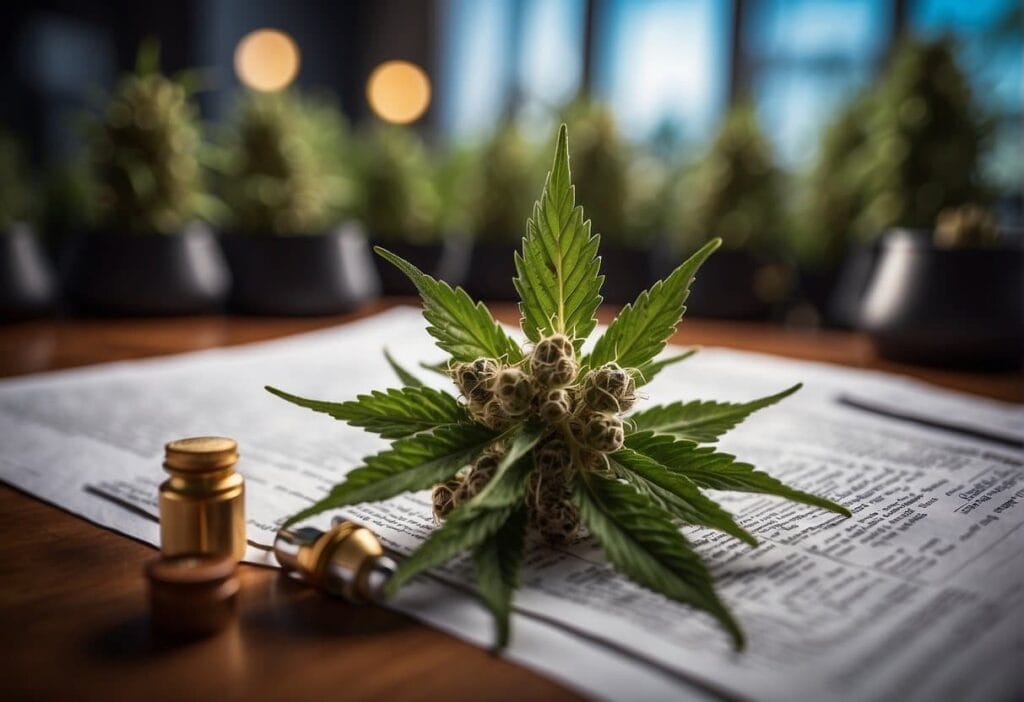
Colorado Cannabis Laws
In Colorado, your right to interact with cannabis is encompassed by comprehensive laws which regulate both recreational and medical use. Here, you’ll understand what’s legal, specifically including regulations around THCa.
Current State Cannabis Regulations
If you’re 21 or older in the state of Colorado, you may legally purchase, possess, and consume cannabis for recreational use. Colorado permits the personal possession of up to one ounce (28 grams) of cannabis. Buying cannabis can only be done through licensed dispensaries, and public smoking or vaping of cannabis is illegal. Medicinal use is also recognized, with Colorado having a medical marijuana program that prescribes cannabis for various qualifying conditions.
It’s important to note that while cannabis is legal in Colorado, these rights don’t extend to federal lands within the state where federal laws apply, marking the distinction between state and federal regulation.
THCa Specific Regulations
Tetrahydrocannabinolic acid (THCa) is a non-psychoactive precursor to THC found in raw and live cannabis. Under Colorado’s cannabis laws, the regulation of THCa is less explicit. However, since THCa converts to THC, a psychoactive compound, upon heating (as occurs during cooking, smoking, or vaping), the state’s regulations on THC content and product labeling implicitly govern THCa as well. Recreational and medical products are tested and labeled for THC potency, which includes considerations around THCa and its conversion factor to ensure compliance with state regulations on cannabis product potency.
Federal and State Legal Landscape
When you’re navigating the complexities of cannabis laws, it’s crucial to understand the distinction between federal statutes and individual state regulations. Here we’ll explore how federal law contrasts with Colorado’s stance on THCa, and how it compares to other states.
Federal Cannabis Laws
Under federal law, cannabis remains classified as a Schedule I controlled substance. This categorization indicates no accepted medical use and a high potential for abuse. Despite states enacting their own legislation, this overarching federal classification persists. The Farm Bill, however, distinguishes between cannabis and industrial hemp, legalizing hemp containing less than 0.3% THC on a dry weight basis. It does not explicitly address THCa, the non-psychoactive precursor to THC, thus leaving a grey area at the federal level.
Comparison with Other States
Comparing Colorado to other states, there’s variance in legal perspectives. While Colorado legalized recreational cannabis, allowing for possession and use within state-specified limits, the legal status of THCa as itself is less clear. It commonly converts to THC when heated, thus its state legality is intrinsically linked to the legal status of THC. Your understanding must consider local state laws and the broader legal landscape, as federal law currently clashes with state-enacted cannabis laws. This discord creates a complex legal backdrop where compliance with both local and federal regulations is critical.
Legality of Cannabinoids
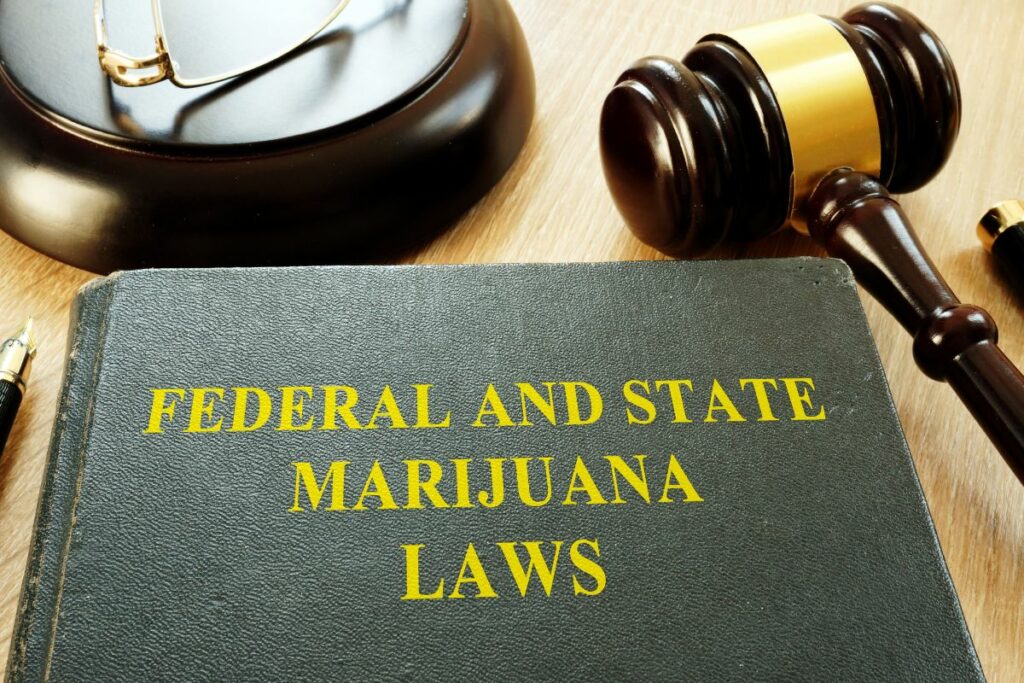
Understanding the distinctions between hemp-derived and marijuana-derived cannabinoids, as well as the legal status of various compounds like CBD, delta-8, and delta-9 THC, is essential as you navigate the legal landscape of cannabinoids in Colorado.
Hemp-Derived vs Marijuana-Derived
Hemp-derived cannabinoids are sourced from the industrial hemp plant, which is legally defined as a cannabis plant with no more than 0.3% delta-9 THC by dry weight. In Colorado, hemp-derived products, such as CBD and hemp-derived delta-8, are legal under state law. These products must adhere to state regulations, which include testing and labeling requirements to ensure consumer safety.
On the other hand, marijuana-derived cannabinoids come from cannabis plants with higher concentrations of delta-9 THC. While Colorado has legalized recreational marijuana for adults over 21, the production and sale of marijuana-derived cannabinoids are subject to stricter state regulations compared to their hemp-derived counterparts.
Legal Status of CBD and Other Cannabinoids
CBD (Cannabidiol) extracted from hemp is legal in Colorado. It is widely used for its potential therapeutic benefits without the psychoactive effects of delta-9 THC. CBD products can be found in various forms, such as oils, tinctures, and edibles, and are used for recreational and wellness purposes.
When it comes to other cannabinoids like delta-8 and delta-9 THC, legality varies. Delta-9 THC, the main psychoactive compound, is legal in Colorado for both medical and recreational use. However, despite being federally legal under the 2018 Farm Bill, the legal status of delta-8 THC is more complex, and its availability may vary between states. But in Colorado, delta-8 is legal as long as it is derived from legal hemp.
Possession, Use, and Commerce
In Colorado, understanding the boundaries of legal actions regarding THCa is crucial for ensuring compliance with state laws. As you navigate the landscape of cannabis and its derivatives, it’s important to grasp the distinction between possession and commerce, all of which operate within a regulated framework.
Possession Laws in Colorado
In Colorado, you are allowed to possess cannabis, which includes THCa, under specific regulations. Adults over the age of 21 may possess up to one ounce (28 grams) of cannabis. It’s important to note that THCa, which is the non-psychoactive precursor to THC, is included in the definition of cannabis. You are expected to follow these possession laws rigorously to avoid any legal issues.
Commercial Regulations
Regarding commercial activities, the laws in Colorado are quite structured. Businesses must acquire the proper licenses to sell cannabis and cannabis-derived products, such as those containing THCa. Any commercial cannabis activity without a license is considered illegal, so if you are planning to enter the cannabis market in Colorado, securing the right permits is a mandatory step. Remember, while cannabis is legal at the state level, there are federal regulations that still classify marijuana as a controlled substance.
In summary, possession of cannabis including THCa is legal in Colorado within the specified limits, and commercial activities require proper licensing and adherence to state laws.

Emerging Trends and Research
In Colorado, your understanding of cannabis legality expands with current research and trending legal frameworks. The landscape of cannabinoid research and legalization is evolving, particularly in areas concerning the non-psychoactive precursor to THC, known as THCa.
Recent Changes in Cannabinoid Research
Recent research developments have piloted the journey from traditional usage of THCa in herbal medicine to potential applications in areas like the treatment or management of COVID-19 symptoms. Technological advances and a greater scientific understanding have led to the exploration of cannabinoids beyond their psychoactive properties. For instance, the conversion from CBGA to THCa is a focus of research, holding implications for both the medical field and legal perspectives on cannabis.
Future Legal Considerations
You’ll find that the legal landscape in Colorado is particularly interesting with regard to the THC content in cannabis products. While THCa itself is not psychoactive, its decarboxylation, which can occur through heating, transforms THCa into the psychoactive THC. In Colorado, where medicinal cannabis is available, the distinction between THCa and THC becomes relevant. Future legal considerations are likely to address how THCa is regulated, especially in light of its transformation into THC. Regulations may become increasingly nuanced to reflect the evolving understanding of cannabinoid science.
Frequently Asked Questions
In Colorado, THCa is a topic of interest due to its association with cannabis and its legal status. Understanding the specific requirements and differences is important for compliance and awareness.
What are the legal requirements to possess THCa in Colorado?
To possess THCa in Colorado, you must comply with state cannabis laws. Colorado allows adults over the age of 21 to legally possess and purchase cannabis and its derivatives, including THCa, as per the regulations established after the legalization of recreational marijuana.
Can one legally ship THCa to or from Colorado?
Shipping THCa to or from Colorado can be complex due to federal regulations. While Colorado state law permits the possession of cannabis products, the transportation of cannabis across state lines remains illegal under federal law.
How do the legal statuses of THCa differ between Colorado and nearby states?
The legal status of THCa varies widely among states. While Colorado has legalized both medical and recreational marijuana, nearby states may have different regulations, with some permitting only medical use and others having no legal allowances for THCa at all.
Does THCa produce psychoactive effects similar to THC?
THCa does not produce psychoactive effects like THC. It is the non-intoxicating acid form of THC found in raw cannabis plants. THCa becomes psychoactive THC through decarboxylation, usually by heat.
How does the legal status of THCa compare to Delta 9 THC?
THCa’s legal status in Colorado is tied to the state’s cannabis laws, similarly to Delta 9 THC (the principal psychoactive component of cannabis). Both substances are legal for adult use in Colorado, within the bounds of state regulations.
What is the typical potency of THCa in cannabis products?
The potency of THCa in cannabis products varies but is generally highest in raw, fresh cannabis plants. In states with legal cannabis markets like Colorado, products are often labeled with the total milligrams of THCa and its potency is tested to ensure compliance with state laws.

